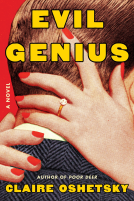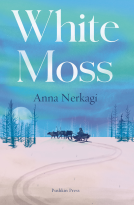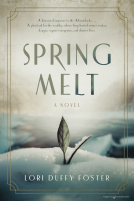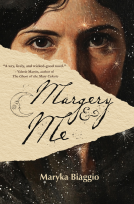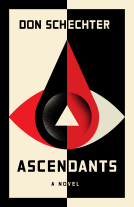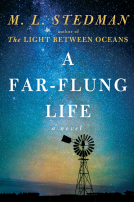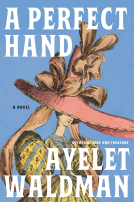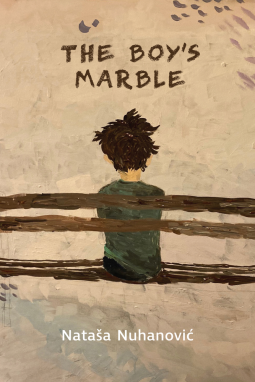
The Boy's Marble
by Nataša Nuhanovic
This title was previously available on NetGalley and is now archived.
Send NetGalley books directly to your Kindle or Kindle app
1
To read on a Kindle or Kindle app, please add kindle@netgalley.com as an approved email address to receive files in your Amazon account. Click here for step-by-step instructions.
2
Also find your Kindle email address within your Amazon account, and enter it here.
Pub Date Sep 01 2022 | Archive Date Dec 01 2022
Talking about this book? Use #TheBoysMarble #NetGalley. More hashtag tips!
Description
The Boy's Marble tells the story of experiencing a war through the eyes of a child. Separated as children during the Sarajevo Siege, the narrator meeets someone who reminds her of the boy even twenty years later in Montreal, Canada. They were supposed to run away together, only he never came. She has not seen him since and wonders whether this person she met could really be him. Amongst the many books that can be classified as war-fiction, this novel is different as it looks at this difficult tragedy through the eyes of a child in a, one could say, healthy way. The narrator does not sweep the painful and tragic memories under the rug, but she also does not place them onto her primary radar. The story unfolds in a way that does not burden the reader even more, but wakes in him hope, love and helps understand just how useless, meaningless and absurd war is. The story helps the reader find the strength and meaning to live without hate and recover a lost innocence. In essence, the novel is a brilliant anti-war story, very timely and necessary exactly now.
A Note From the Publisher
Marketing Plan
Lead Fall 2022 title; select advertisements in wholesale/ library pubs; advertisements in MRB and Q&Q; readings across Ontario and Montreal in September; pre-order campaign / social media campaign; wide outreach to various publications and media; outreach to podcasts/ instagrammers.
Available Editions
| EDITION | Other Format |
| ISBN | 9781771837392 |
| PRICE | $17.95 (USD) |
| PAGES | 100 |
Links
Average rating from 12 members
Featured Reviews
 Fran E, Reviewer
Fran E, Reviewer
"There must be a different world somewhere out there and if we try hard enough, we will find it. I believed [the boy]. We were only children. We devised a plan. Both of us would sneak out at midnight and meet at our favorite bench..." "...the more I think of you, the closer I am getting to the moon...I don't think the moon slide would work without my magic slippers. I don't think I can do it without Snoopy's blanket beneath my soles." We were supposed to run away, but you never came.
The Sarajevo Siege which started in April, 1992, lasted 1,425 days, and ended in February, 1996. In first person stream of consciousness, a young girl recounts the cost of war. The writing style allows the reader to examine the girl's thoughts and feelings which seemingly are part imagination, part overlapping memories.
"We had already been counting a long time for the war to end, and we no longer wanted to wait...time to start counting the days towards our escape...tomorrow...the day to run away...I have not seen him since." Where was the boy from the bench? Why didn't he meet me? With fake passports in hand, the girl's family resettled in Canada in 1993. Two decades later, the girl saw a man that seemed to resemble the boy. Is he the boy from the bench?
The boy had a favorite marble. Holding it made the girl feel safe, however, the river inside had turned from blue-green to brown. The boy's marble collection, contained in a chalk circle and left outside overnight, were disappeared by a mortar strike. What about flowers? "I see a lot of flowers right in front of me...they are frozen in the position of their last moment of life...Like an audience that gave a standing ovation, but never sat down again...".
Living in a different city on a different continent...twenty years had passed. The girl still had haunting childhood memories of war's devastation. In her mind's eye, she saw "countless photographs of missing people". And the boy's marble? "Maybe the river inside would be blue-green again [because] everyone would be reminded that the rivers in our city were not always brown...a time when everyone was on each other's side. Maybe the marble may remind grownups that they could stop fighting and play together instead."
"The Boy's Marble" by debut novelist Natasa Nuhanovic is an outstanding anti-war novel. Ruminations on the cost of war are expressed in the young girl's monologue which meanders between the past and present. Highly recommended.
Thank you Guernica Editions and Net Galley for the ARC in exchange for an honest review.
 Elyse W, Reviewer
Elyse W, Reviewer
“Natasa Nuhanovic was born in Croatia. She grew up in a mixture between Croatia, Bosnia, Germany, and Canada. In 1994 her family escaped from Bosnia to Germany admidst the Bosnian war. Eventually, in 1998 her parents took her to Canada. She studied English literature, comparative literature and German literature at the University of Waterloo, University of Toronto and McGill, respectively. In 2010, Natasha published her first poetry collection, ‘Stray Dog Embassy’, with Mansfield Press. She continued to work and the literary field as a translator and interpreter after which she decided to venture into the medium of film. ‘Close the Door’ is her first feature-length movie at is set to play at several festivals. ‘The Boy’s Marble’ is her debut novel”.
The blurb written for “The Boy’s Marble” is ‘excellent’!!! READ IT.
It was from this blurb and Goodreads friend, Fran’s review that set me up —- I knew instantly I was interested in reading this book.
Children growing up in the heat of war — even running from it —is a terrifying thought to contemplate.
Elie Wiesel who wrote ‘Night’ …. a horrifying account from his teenage memories from having been taken from his home, along with his family, to the Auschwitz concentration camp — said:
“If in my lifetime I was to write only one book, this would be the one”…..
He also said….
“For the youth of today, for the children who will be born tomorrow. He does not want this past to become their future” ….
which brings us to another war: the Sarajevo Siege….
…..one Natasha Nuhanovic felt compelled to write about…..through the eyes of a child.
Using a child’s point of view allowed me as the adult reader to understand far more than child narrator—while allowing the child’s (a young girl), voice to flourish authentically.
As the adult — I got a pretty clear experience of how this innocent child dealt with post traumatic stress, loss, and her horrific life disruptions.
It’s a slim book at 200 pages. The writing is non- stop beautiful….almost ‘too’ beautiful. I felt it could have been a 100 pages: still powerful and unforgettable.
By page 139…. after pages of ceaseless —continuous—endlessness—beautifully harrowing—rhythmic lyrical prose …..I was tiring of it — it all began to feel ‘too much’.
This next paragraph is ‘powerfully-sad’ and ‘beautifully-written’, but I was getting drained and restless.
I was ‘already’ saturated with prior beautiful writing.
“The bright colours are seeping into my iris. The spring water is filling up the empty canisters. I am almost there. The colours are getting brighter. Light is bouncing off the water in the canisters and into my eyes. The next person in line comes in. The gate in front of my grandparents’ house makes a screeching sound as a gust of wind bumps it against the side. A vibration flows through the ground and tips the canister. The wind circles around it’s opening and whistles in a melody that sounds a lot like the sound the cylinders with the children’s names made.
The ground is vibrating again and something is pulling at my back. My eyes are opening, but it is getting darker instead, there is no more space in front of me. My eyelashes are brushing against some kind of ceiling. Dust particles are falling into my pupil”.
I’m glad I read this book —(Natasa Nuhanovic is ‘very’ talented making every sentence count)….one that somehow carried the lightness of a fairytale…from being so highly imaginable—and simmering in memories….
but I do admit her delicately poetic style was at times deeply engaging and other times taxing my nerves.
A few more excerpts that ‘did’ really speak to me:
“I want to say something to the boy, but I can no longer speak; the outside air is not reaching me. Both my eyes are turning into marbles with which we used to play almost every day. His favorite was the one with the blue-green river inside until it one day became brown, just like the rivers in our city. I guess nobody needed to ask why. Still, he would hold the marble tightly in his hand hoping next time he opens it, it will look more like he remembers, more like before when the flowers of the river were not yet trying to escape. What is the shattering sound? The marble is broken. There is water in my mouth, my hair is soaked and I have forgotten how to swim. Pedals on my tongue are piling up telling me stories of what they witnessed. Countless photographs of missing people are spiraling around me. Some are smiling. Others look serious, as though they could tell what was coming. On one, a grandmother is knitting an orange sweater with her grandchild sitting beside her. The river is carrying them all away. No, this cannot be, who will remember them then? This one photograph is not enough. I do not know anything about them. I need to know more. I need to know what happened. Why do I feel a pillow behind my head? No, I do not want to wake up. I need to collect all these facts. Each one of them can tell me more than anyone still alive”.
“I am just a stranger to this new place, because the room is closing its eyes, my breath has coated the window and I am trapped inside. Maybe everybody knows that, too, that some things can only be communicated in the dark. The war teaches you how to do that with wide-open eyes. But it did not teach me about the growing abyss that would remain in my eyes after spending years by candlelight and a small nightstand lamp. It did not tell me that one day, when the war is over, a normal light will seem too bright and burn my eye, that’s the address is too big to contract, and there is nowhere else to put all that has happened. I did not know then that years later I would be in a hotel room, making sure not to turn on most of the lights. I did not know then that my people, growing out of fear and instinct for survival, would become a home for everything I witnessed, a home that I know neither how to close, nor how to live in”.
“Everyone knows that the war makes you simultaneously less than yourself and more than yourself”.
“We were only children then. We devised the entire plan. Both of us would sneak out at midnight and meet at our favorite bench under our favorite street lamp halfway beneath his home and mine”.
“I feel like an open umbrella is spinning inside my lungs. I want to lie down inside, because I am tired of fighting and trying to see straight. I want to see everything turn and not have a problem with that. Nothing makes sense anyway. All these fragments inside me can whirl inside the umbrella like invisible dead skin in the air. They can put themselves together anyway they wish as long as they let me sleep only for a moment, as long as they tell me why I no longer see any reflection in the mirrors anymore at all”.
“Centuries of sorrow collect in my palm”.
“I do not usually mind beige, but these walls are ugly”.
And as I’ve said before —-War is war is War is War!!!
Disturbing, dark, hopeless, depressing, violent, soul wrenching, chilling, disheartening!!!
BUT….if I had to read a book about bleakness…the chaos of post war…,
“The Boy’s Marble” is one hell of a triumph of a first novel…with an endearing child narrator.
4.5⭐
"Everybody knows that the war makes you simultaneously less than yourself and more than yourself. Everybody knows that during the war you can hear steps from kilometres away, but nobody told me that they will stay with me years later or what to do with all these people living inside my eyes."
It has been twenty years since our unnamed narrator was a child in Sarajevo caught amid the Siege of Sarajevo (that continued from 5 April, 1992 to 29 February, 1996 for 1,425 days) in which 13,952 (maybe more) people lost their lives, including over 1600 children. Though she is presently in a city (Montreal, Canada) far away from where she spent her childhood, her memories are easily triggered. In a first-person stream of consciousness narrative, our narrator moves back and forth between past and present as she recounts memories of her childhood home, her parents and grandparents and her plans of traveling to the moon with her childhood friend- a boy who was her companion and with whom she played marbles with – their favorite marble being a blue-green hued marble that held a special place in both their hearts.
She had plans to escape the war-torn land with her friend. However, while she waited on their bench for him, he never showed. In the present day, it has been six months since she has met someone who reminds her of her friend. As the narrative progresses, we see her thoughts drift back to the memories of her childhood, often the lines between past and present become blurred.
The author also incorporates some facts about post-war Sarajevo, especially detailing the memorials dedicated to those who lost their lives. Our narrator describes the Sarajevo Memorial for Children Killed During Siege which features small columns engraved with the names of 521 children who were killed during the siege and a fountain with little footprints engraved at the base. She also describes the Sarajevo Roses, which are craters caused in the asphalt by exploding mortar shells that have been filled with red resin and that remain scattered throughout the streets, often resembling petals of a flower.
“Who would have thought that many years later these wounds would be filled with red resin and turn into flowers? Something broken now resembles flower heads. Who would have thought they would be called Sarajevo Roses? This is what the pain will be eternalized as in history. The holes left by the shells have turned into scattered petals.”
Natasha Nuhanovic’s writing is exquisite. On one hand, while we revisit memories of the devastation and bloodshed of war-torn Sarajevo with the child our narrator once was, we also bear witness to how traumatized the adult remains in the present day. Vividly descriptive and immensely disturbing, The Boy’s Marble requires more than a tad of patience to read through. Every single line of this book needs to be read to follow our narrator’s train of thought. At barely over 200 pages, while this is a heavy and emotionally exhausting read it is also a rewarding and unforgettable one.
Many thanks to Guernica Editions and NetGalley for the digital review copy of this novel. All opinions expressed in this review are my own.
Readers who liked this book also liked:
Publishers Lunch
General Fiction (Adult), Nonfiction (Adult), Teens & YA

